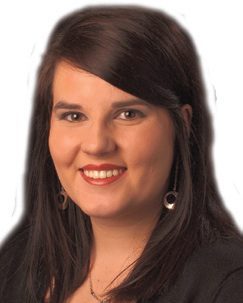15 Jan 2018 Showing love in a variety of ways
by Katelin Whiddon
Gary Chapman has written a series of books on what he calls “Love Languages.” These books help to identify different ways people express and receive love. This has been studied for years with adults, and I have recently read the version regarding children.
The website – 5lovelanguages.com – shows more than 50 books regarding love languages in different life stages, ages and circumstances, as well as fiction books, devotionals and more. There are numerous quizzes available as well to help identify your own love languages and those around you.
Gary Chapman coined a term “love tank.” He refers to filling up others’ “love tank” to help people feel loved. When a person’s “love tank” is low, they can feel unloved, and that can lead to problems in any type of relationship.
My husband and I have different love languages, and even our two girls show and receive love differently. What types of actions and words mean the most to one child are not the best way to show love to the other. Finding what matters most to those important to you will help you to reach a new level of love with each of them.
The five love languages are as follows: words of affirmation, acts of service, affection, quality time and gifts. Those whose love language is words of affirmation respond well to others telling them when they’re doing things well, how wonderful they are and that they are appreciated. One whose love language is acts of service will thoroughly enjoy others helping around the house, with the kids, or doing a task at work or elsewhere that they would normally be responsible for.
The love language of affection can also be called “physical touch.” These individuals feel loved when others hug, kiss or even just sit near them. This is a particular love language that people either have or don’t. Affection and physical touch can be areas that are very uncomfortable for some people and should not be taken lightly.
Those whose love language is quality time enjoy people making time in their schedule for them. For kids, this could even mean splitting up siblings and having a “date” with one child at a time so they get 100 percent of your attention.
Gifts are self-explanatory and mean more to those who identify with that love language.
Sometimes it is difficult when we try to show love and it is not received as we intended. Learning the love languages of those around you, including your children, will help keep “love tanks” full.
Letting your children see you love others around them also teaches them a variety of ways to show love to one another. Feel free to try a variety of different love languages with those around you to help identify what they respond to best.
A Conway native, Katelin Whiddon is a nurse practitioner at the Conway wound clinic for Arkansas Heart Hospital. She and her husband, Daniel, have two daughters. A University of Central Arkansas graduate, she has her bachelor’s and master’s degrees and works in pediatrics.












